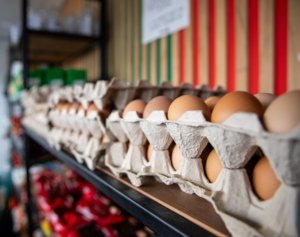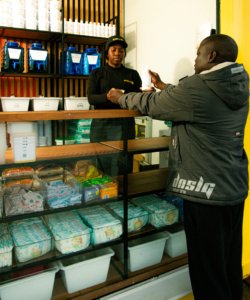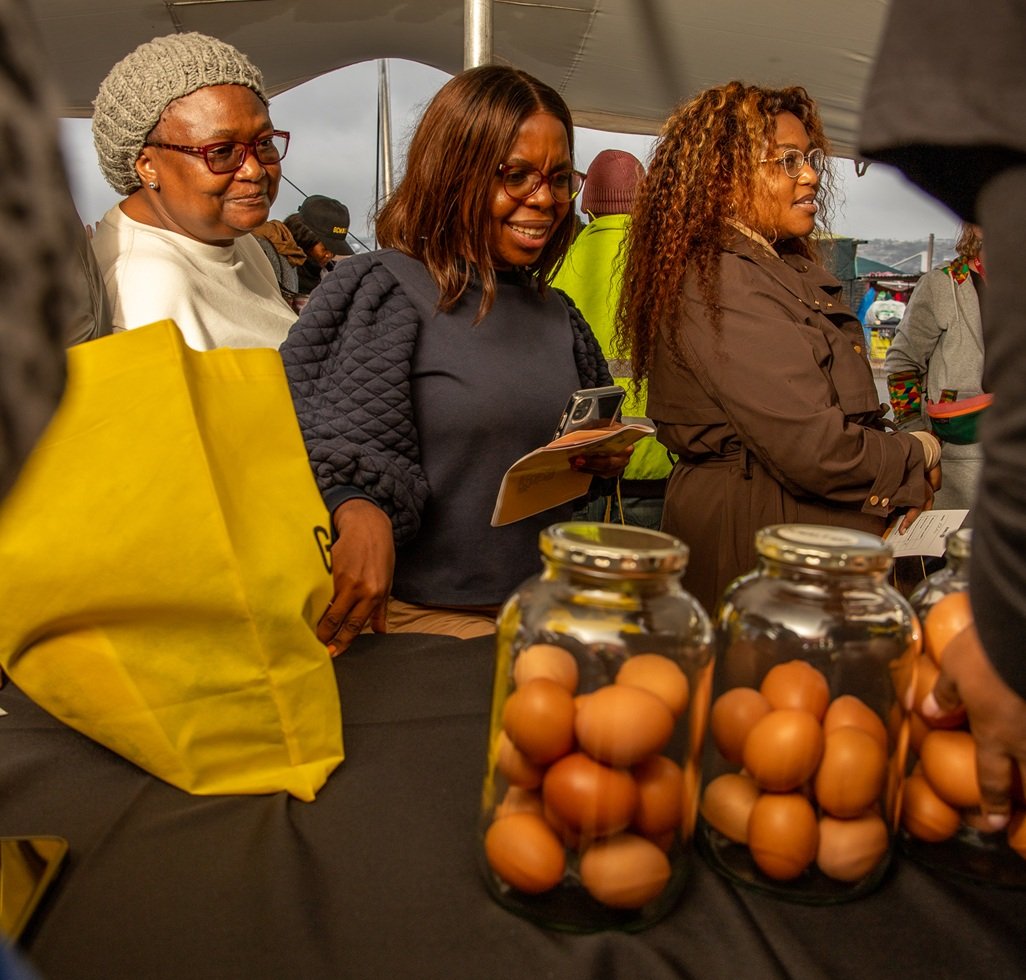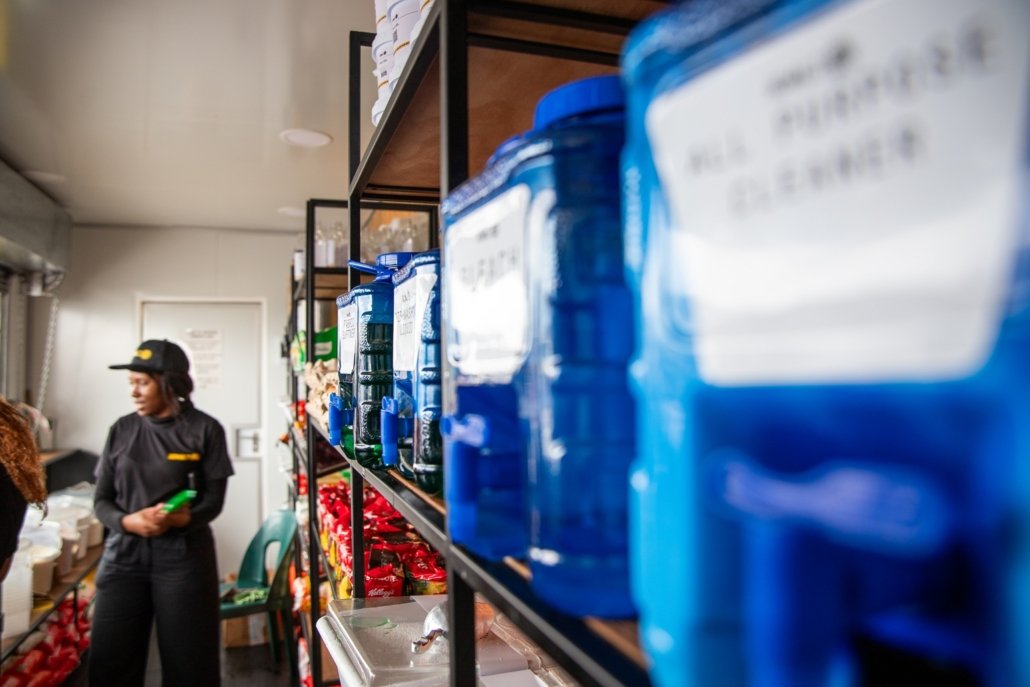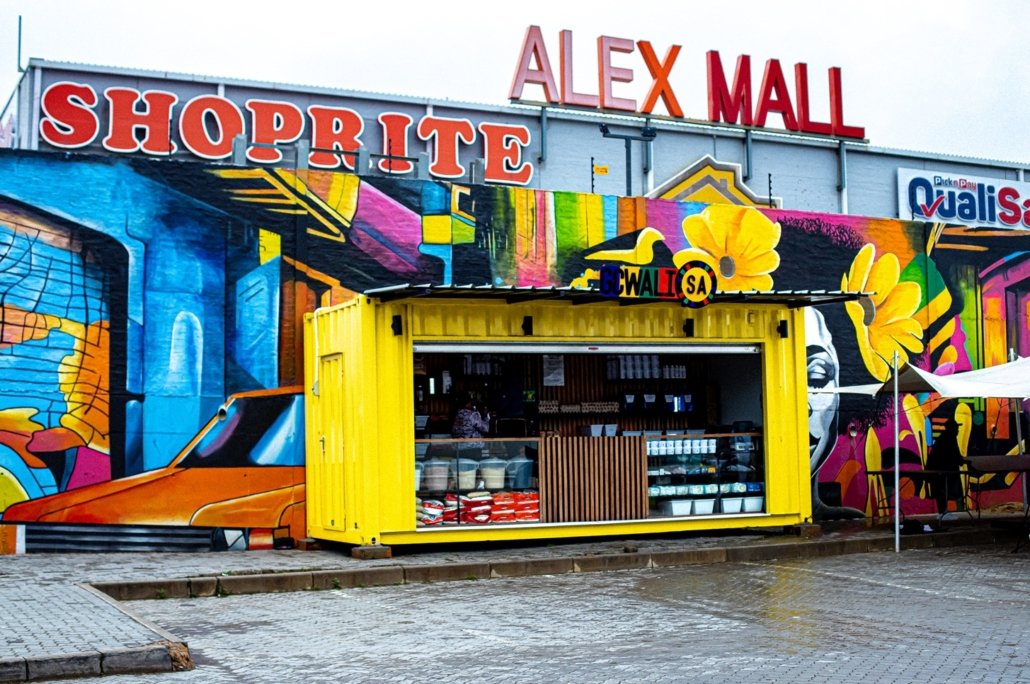From Pandemic to Circular Economy
From Pandemic Crisis to Circular Economy: How Gcwalisa is Redefining Reuse in Alexandra
At first glance, it might sound like a utopian dream: an organisation that tackles plastic waste, promotes circular packaging, cuts household costs, and creates local jobs. But in Alexandra, a densely populated township on the outskirts of Johannesburg, that dream is very much alive, and it’s thriving.
The idea behind this transformative model came from social entrepreneur Miles Kubheka, who founded Gcwalisa with a bold mission: to challenge the poverty tax and restore dignity through affordable, innovative retail in underserved communities. From the very beginning, Josephine Katumba, a community builder who had been working in Alexandra with Miles since the pandemic, helped bring this vision to life, shaping its reuse model and building the community trust and systems needed to make it work on the ground.
A Bright Idea Born from Hardship
The seeds of change were planted during one of South Africa’s darkest moments – the COVID-19 pandemic. With jobs vanishing and uncertainty hanging in the air, many residents of Alexandra couldn’t afford to buy more food than they needed for a single day.
That’s when the team began experimenting with a model that allowed customers to purchase essential items in bulk, but in small, affordable quantities – tailored to daily needs and constrained budgets. The real innovation? Encouraging customers to bring back their containers for reuse. Creating a simple but powerful model for circular living that reduced both plastic waste and household expenditure.
Turning a Small Idea into a Big Movement
The model caught the attention of Plastics SA, who had been approached by Deutsche Gesellschaft für Internationale Zusammenarbeit (GIZ) through the Circular City Labs (CCL) project. These partners were on the lookout for South African reuse projects, ideally led by women, that could transform the way plastic packaging is used in underserved communities.
Out of 17 applicants, Gcwalisa stood out, not just for its ingenuity, but for its deeply embedded community approach. The result was a partnership to pilot the model with support from GIZ, Circular City Labs, and Plastics SA.
Gcwalisa, which means “Refill” in Zulu, was born – a joint effort supported by GIZ’s Circular City Labs and Plastics SA.
Measurable Impact in Just Months
Operating out of four outlets across Alexandra, Gcwalisa has made impressive strides in a short period. Between April and June 2025 alone, the initiative recorded:
- Over 2,400 reuse purchases and returns
- An increase to 1,194 active returns, showing strong customer adoption
- Four women employed as Reuse Ambassadors, trained through the Pathways to Possibilities (P2P) programme, earning income while spreading the reuse message
These outcomes signal more than just numbers, they reflect a shift in consumer behaviour and the power of reuse when it’s rooted in trust, convenience, and community benefit.
In order for the re-use concept to work, the containers had to be reusable, durable, recyclable, lightweight, cost effective and, for food products, food safe, and polypropylene (PP) jars and buckets and polyethelene terephlate (PET) bottles were the perfect match. Two reliable South African plastics manufacturers supply all of the containers. All packaging is labelled with the specific product name, reuse process and a unique QR code to track reuse. Customers may also choose to bring their own containers to refill.
Empowering Women, One Container at a Time
Education and engagement are central to Gcwalisa’s mission. Colourful community activations, complete with music and hands-on demonstrations, have drawn curious onlookers and converted them into customers. Surveys show that 78% of participants are women, many of them unemployed. The initiative not only offers a way to save money and reduce waste but also restores dignity and confidence.
Cash-back incentives encourage residents to return containers, and participants have voiced that they feel safe using the reused packaging. What started as a localised pilot is quickly evolving into a scalable model of how circular economies can work in informal urban settings and be driven by women.
From TikTok to Townships: The Power of Storytelling
Even social media is playing a part. TikTok videos showcasing Gcwalisa’s journey have helped spread the word to younger audiences, proving that sustainability can be both practical and shareable. Storytelling, online and in person, is changing perceptions around reuse and highlighting it as an aspirational lifestyle, not just a necessity.
Looking to the Future
The next chapter for Gcwalisa is all about deepening habits and measuring long-term impact. Through a mix of SMS and WhatsApp reminders, staff training, and in-store signage, the project aims to solidify its customer base and track the tangible benefits, including the volume of waste diverted from landfills, emissions reductions, and household savings.
With continued support and innovation, Gcwalisa is well on its way to becoming a model for scalable, community-led sustainability, not just in South Africa, but across the continent.

